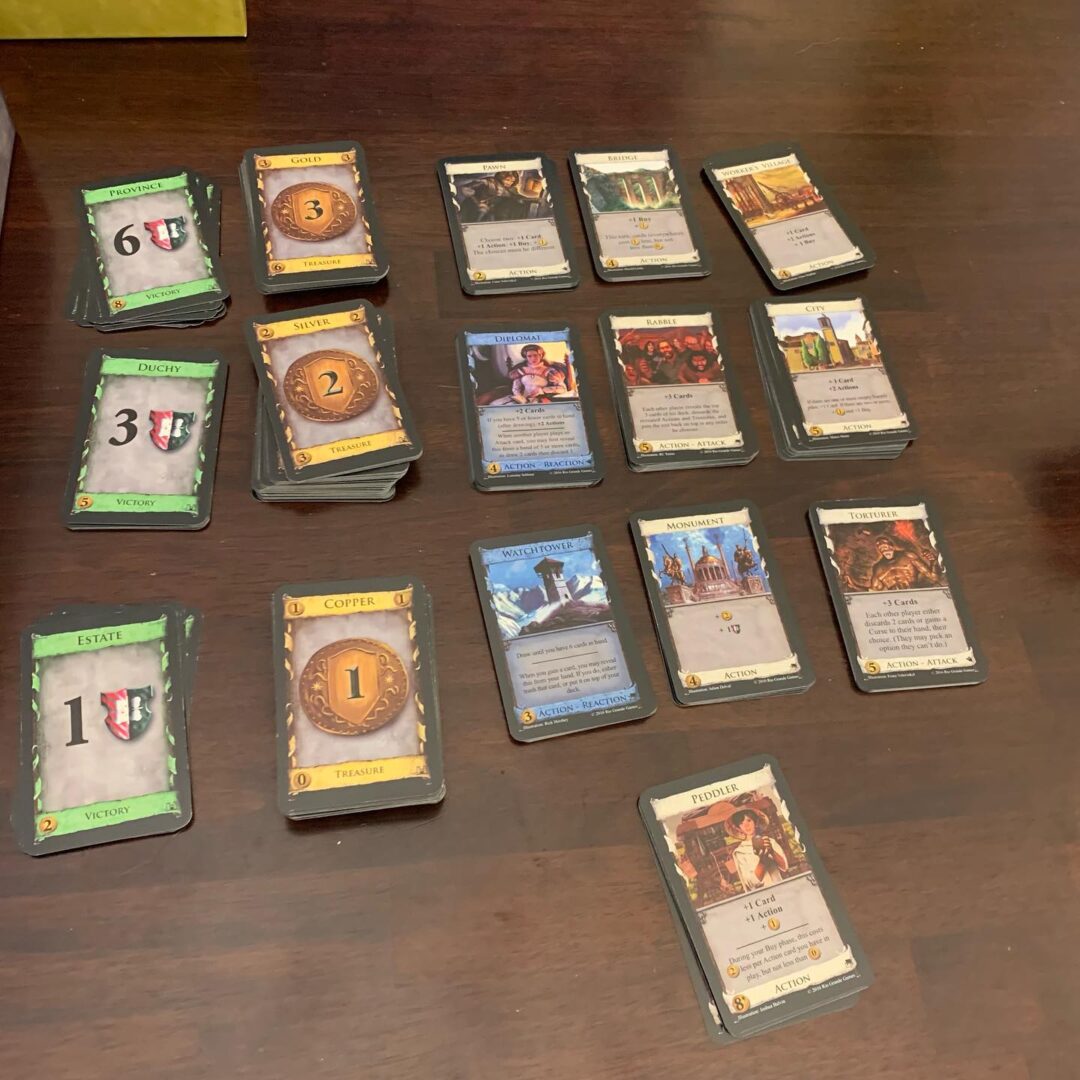Welcome to our exploration series on board game mechanics! In each installment, we’ll take a deep dive into a specific mechanic, examining how it works, analyzing its strengths and challenges, and looking at games that do it justice. We’ll kick off with a closer look at one of the most popular modern mechanics: deck-building.
Deck-building is a dynamic board game mechanic where players start with modest decks and progressively acquire new cards to enhance their strategies.Deck-building is a dynamic board game mechanic where players start with modest decks and progressively acquire new cards to enhance their strategies. This mechanism emphasizes strategic planning and adaptability, as players must decide which cards to add or remove to optimize their decks.
Notable Games Featuring Deck-Building:
- Dominion: Often credited with popularizing the deck-building genre, Dominion has players acquire cards to build their decks and achieve victory points.
- Ascension: Deckbuilding Game: Players recruit heroes and constructs to build their decks, aiming to gather the most honor points.
- Star Realms: A two-player game where opponents use trade and combat to reduce each other’s authority to zero.
- Clank!: Combining deck-building with a dungeon-crawling adventure, players venture into a dungeon to collect treasures, with the risk of attracting a dragon’s attention.
- Dune: Imperium: Integrating deck-building with worker placement, players vie for control and influence in the richly detailed Dune universe.
Examples of Deck-Building Implementations:
Good implementations include Dominion, which elegantly established the core mechanics with its simple yet strategic design. Clank! innovated by combining deck-building with a dungeon-crawling adventure, resulting in a tense, varied experience that players love to revisit. On the other hand, some games have struggled with this mechanic. Xenon Profiteer, for instance, presents interesting ideas but often leaves players feeling boxed in by restrictive deck-building choices. The Hunger, while adding a unique race element, can become overly punishing, causing players to struggle in recovering from early setbacks.
Analysis of the Deck-Building Mechanic:
A well-designed deck-building game encourages players to draft synergies. By focusing on acquiring cards that complement each other, you can build a cohesive strategy that maximizes your deck’s efficiency. Another crucial strategy is deck thinning—removing weaker cards from your deck ensures you draw your strongest options more frequently. Flexibility also plays a key role: adaptability allows you to shift your strategy as the available card pool changes, letting you respond to what your opponents are doing.
Resource management is equally important. Balancing your purchasing power with the need to score points can maintain a strong economy while still pushing you toward victory. You should also consider how card combinations can create powerful loops or combos. Identifying these interactions and taking advantage of them often provides an edge, especially when racing against other players.
Lastly, keep the endgame in mind. Planning ahead and aligning your decisions with a clear path to close out the match efficiently often separates experienced players from novices. Endgame strategies might involve securing high-value cards that also serve dual purposes, such as providing points while keeping your deck streamlined. Recognizing when to shift focus from engine-building to scoring is another key skill that develops over time. Being aware of these subtleties can make the difference between a solid performance and a dominating victory.
Advantages:
- Strategic Depth: Players must make thoughtful decisions about which cards to acquire, enhancing replayability.
- Dynamic Gameplay: The evolving nature of decks keeps the game engaging, as strategies can shift based on card availability.
- Personalized Playstyles: Players can tailor their decks to suit their preferred strategies, leading to diverse approaches within the same game.
Challenges:
- Learning Curve: New players might find the array of card interactions and strategies overwhelming initially.
- Downtime: In games with multiple players, waiting for others to complete their turns can lead to downtime, especially if they are deliberating over card choices.
- Balance Issues: Ensuring all cards are balanced can be challenging; some strategies might become dominant if certain cards are overpowered.
Incorporating deck-building into board games offers a rich experience, encouraging strategic planning and adaptability. With various themes and mechanics, designers create fresh, innovative gameplay. While challenges exist, thoughtful design and clear rules help overcome them. Ensuring a smooth learning curve and balancing cards keeps play engaging. This fosters creative strategies and personal expression, making deck-building a beloved mechanic and a hallmark of many acclaimed titles.











